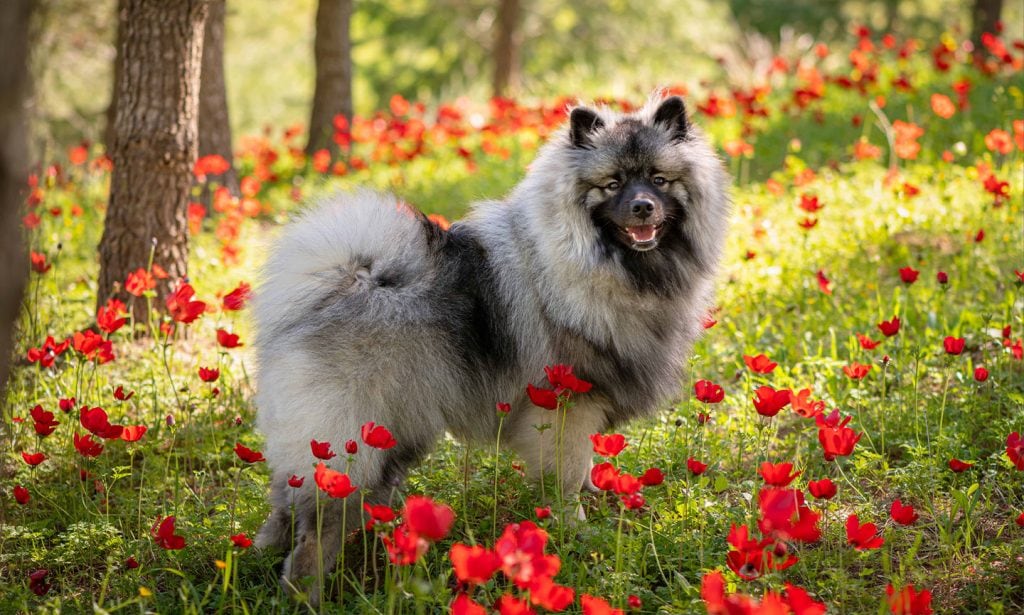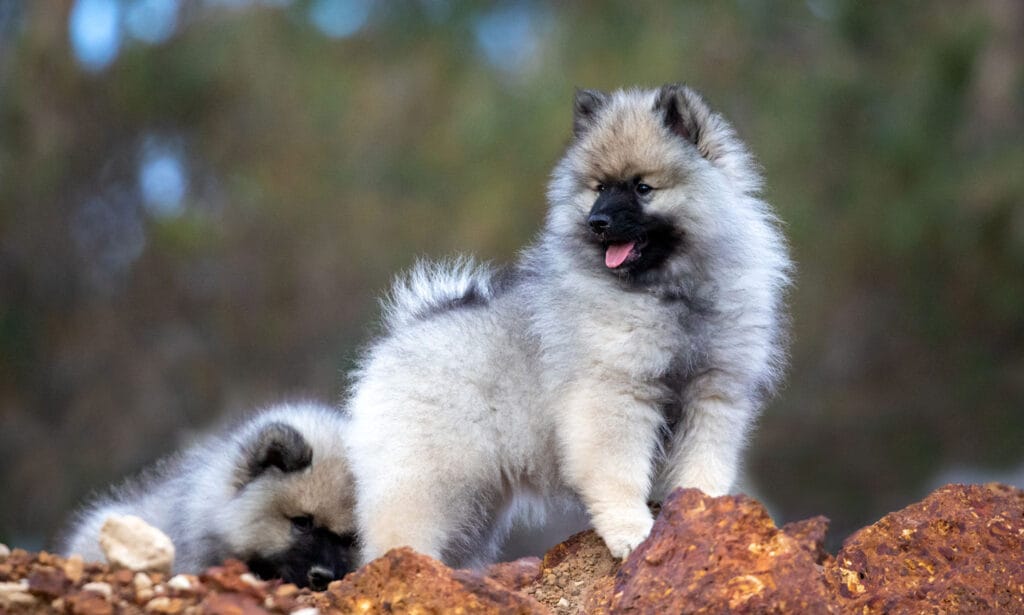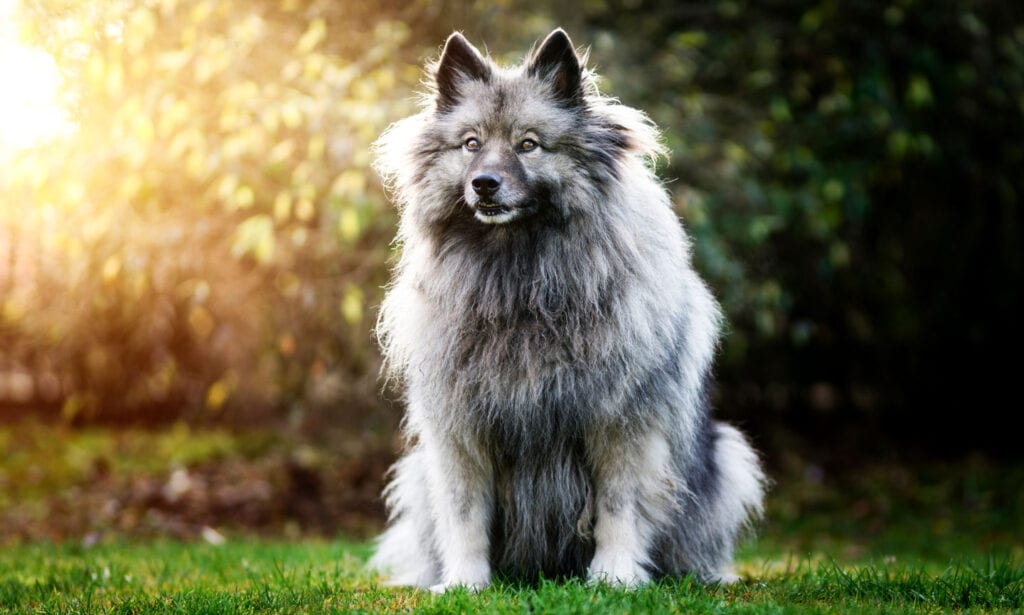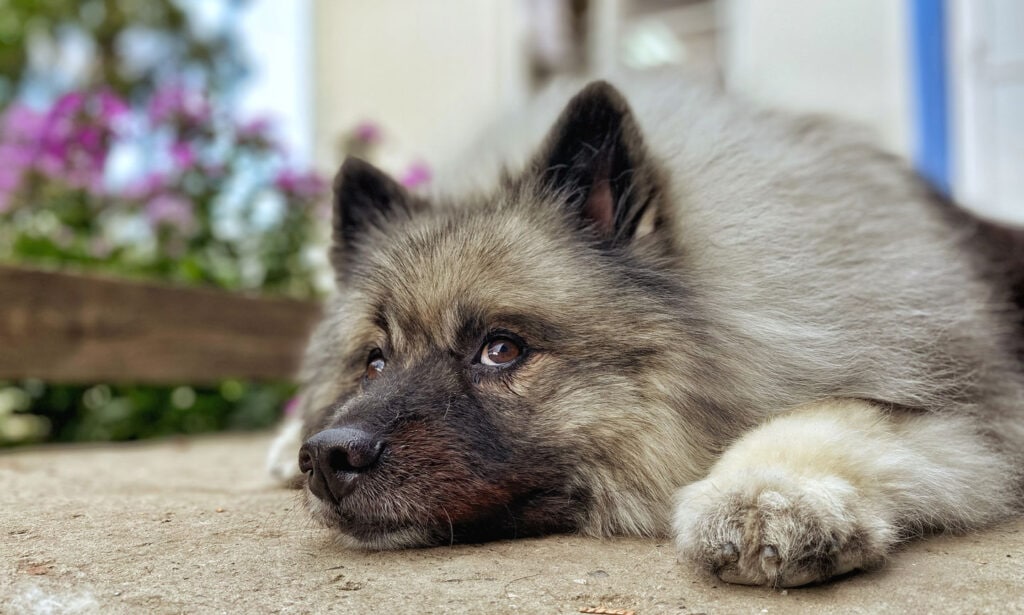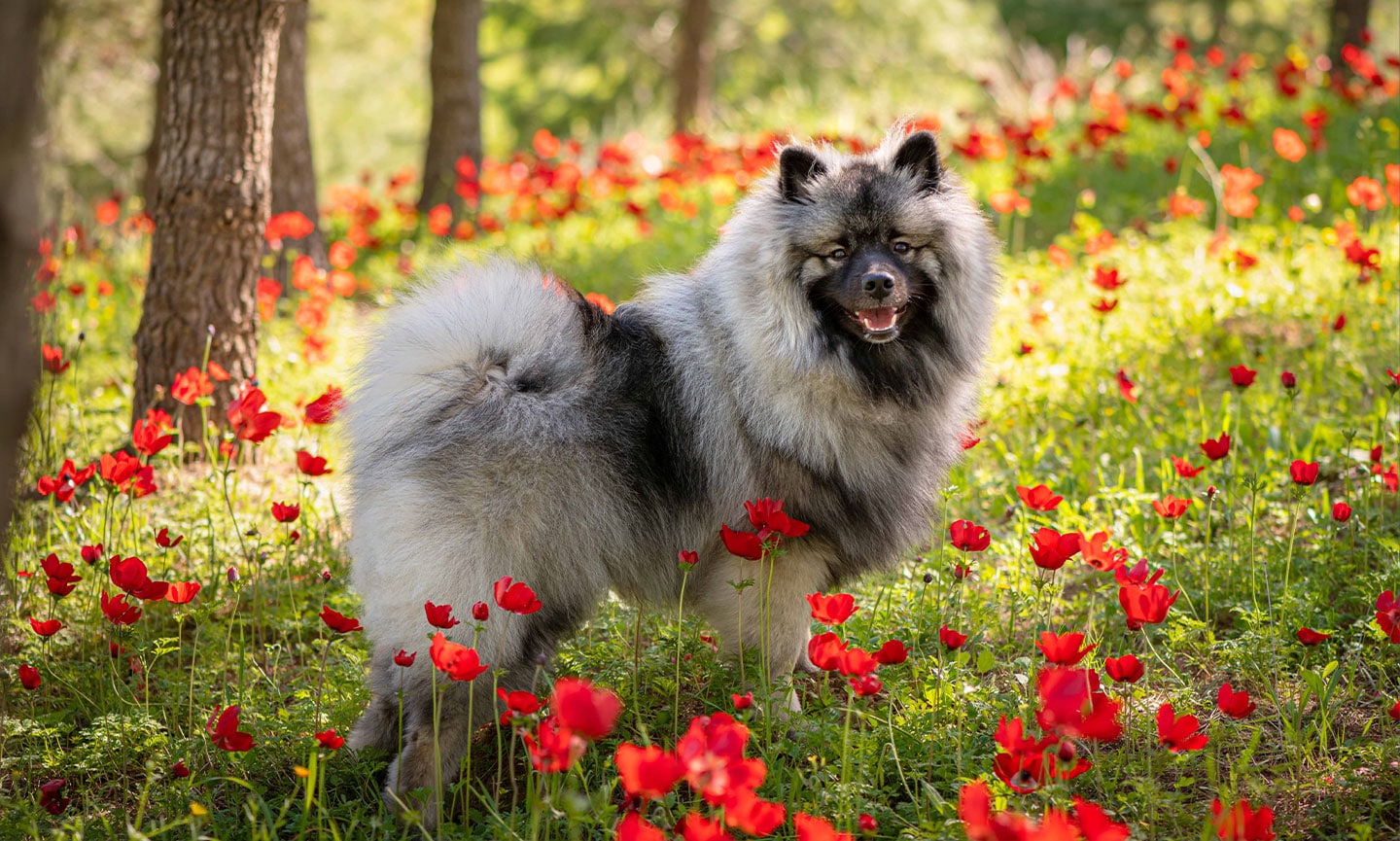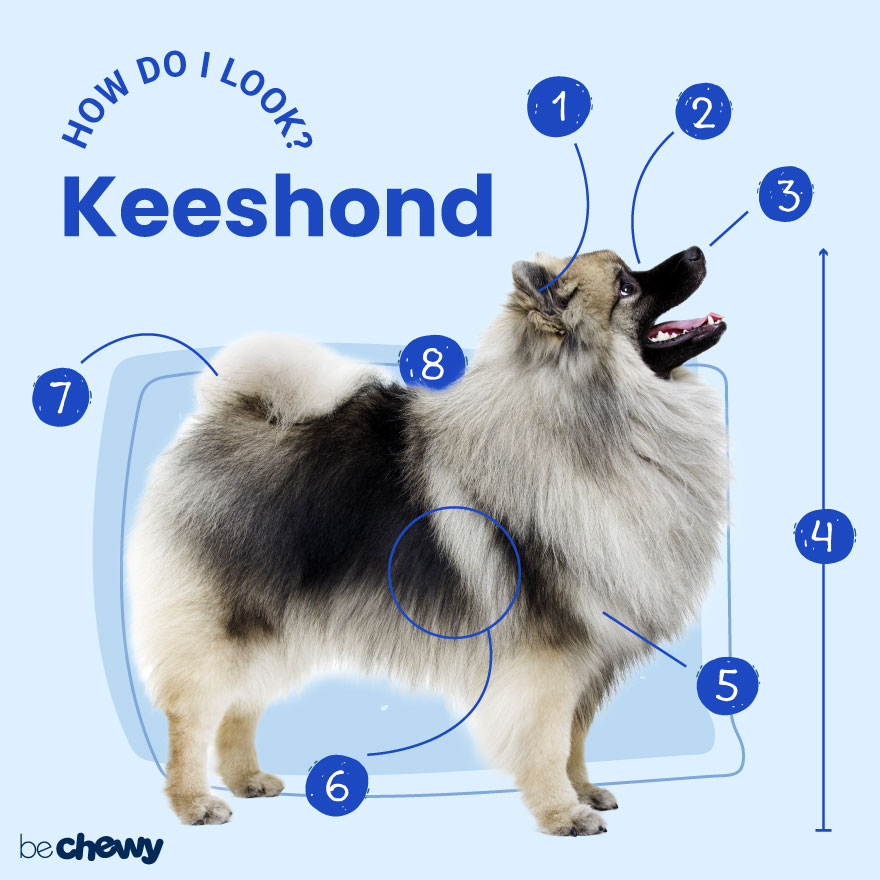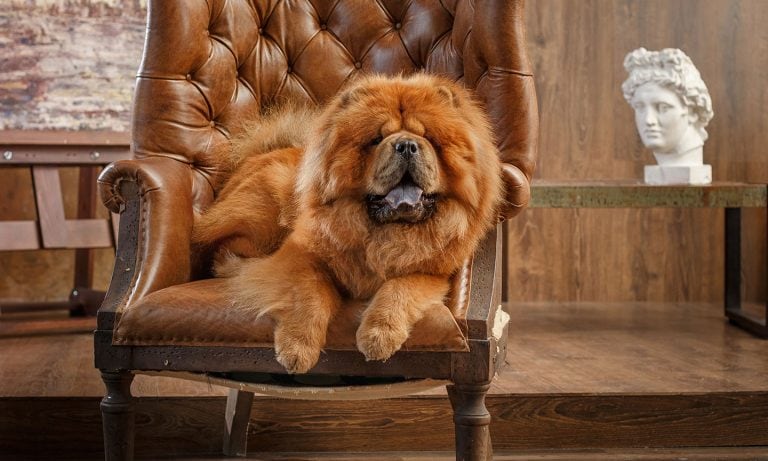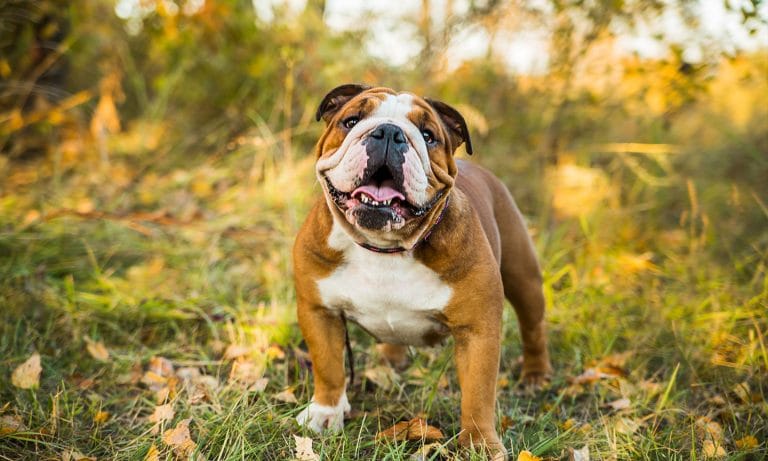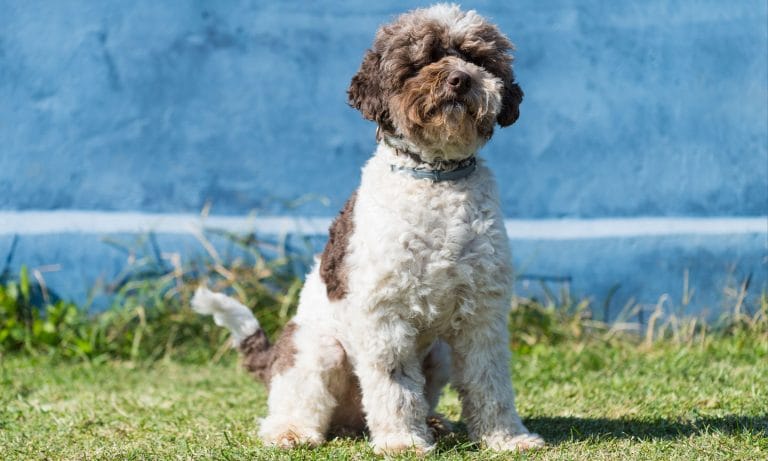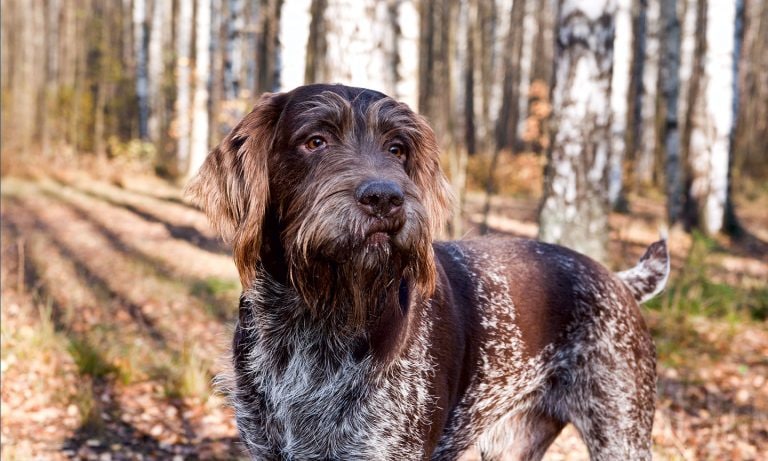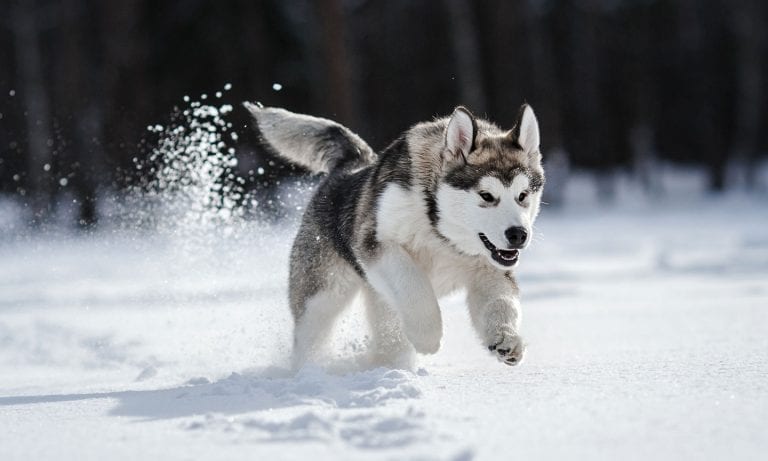Brains and beauty—the Keeshond (pronounced kayz-hawnd) has them both in spades. These intelligent dogs were originally bred to be watchdogs for barges traveling the waterways of Holland. These days, however, they’re more of a couch potato, although they still retain their watchdog smarts (and barking tendencies). Fabulously fluffy with large manes, Keeshonden (plural for Keeshond) are quite the attention getters—and seekers. This dog breed loves to make friends of all ages and species. Ever the social butterfly, your Keeshond will likely be the most popular pup on the block, but you’ll always be their No. 1.
Breed Snapshot
Temperament:
DevotedSociableIntelligentCoat Color:
Black And SilverGray And BlackGray Cream And BlackGray Silver And BlackSilver And BlackWolfgray And Black
Best For
Keeshonden are friendly and intelligent dogs who require regular grooming and moderate exercise. They thrive in loving homes with pet parents who appreciate their playful nature.
Keeshond Temperament
If your Keeshond dog had a Facebook page, their friends list would be a mile long. This delightful Northern European breed is friendly, outgoing and loving. They make lovely pets for families with children and get along well with almost everyone they meet, two- or four-legged alike.
Their deep love for people and attention can sometimes be a detriment. They hate being alone, and some suffer from separation anxiety if given too much time by themselves. But for all their clinginess, they’ll reward you kindly with their loyalty.
Once bred to watch over the barges on the waterways of Holland, Keeshonden are highly intelligent and easy to train. However, this intelligence means they can have a mind of their own, and they will find creative solutions if you try to block them from something they want, like their favorite sofa. Positive reinforcement training, which rewards good behavior, is necessary for their gentle, sensitive personality.
Thanks to their history as a watchdog, your Keeshond will likely bark—loudly—but more as an alert or a welcome when someone visits. (Woohoo! Guests are here!) They aren’t exactly guard dogs and might end up covering an intruder with kisses.
How to Care for a Keeshond
Keeshonden are medium-maintenance pups. While you will spend oodles of time caring for that luscious double coat (consisting of a thick, downy undercoat and heavier topcoat), they only need a little time spent in exercise or training. Read on for more Keeshond 101.
Keeshond Health
The Keeshond lifespan is 12 to 15 years. They are a generally healthy breed, although they do have a few health problems for pet parents to be aware of. These include:
- Hip Dysplasia: Hip dysplasia is a degenerative condition of the hip joint that typically gradually worsens and plagues many breeds, including the Keeshond. It can cause lameness, pain, and arthritis. Various treatments include weight management, joint supplements, laser therapy, acupuncture, pain medication, and, in severe cases, surgery.
- Elbow Dysplasia: Elbow dysplasia, similar to hip dysplasia, occurs when the elbow joint doesn’t form properly and rubs, causing the dog pain. A pup with elbow dysplasia may limp or seem to be in pain. Surgery is often recommended for elbow dysplasia.
- Patellar Luxation: This is when a dog’s kneecap slips out of its patellar groove. Dogs will often skip for a couple of steps when walking, bunny hop, limp, or show other signs of being in pain. Depending on the severity, treatment options range from joint supplements and pain medications to surgery.
- Tetralogy of Fallot: This is a congenital heart defect with symptoms that often include murmur, weakness, fainting, shortness of breath and blue gums or skin. If your vet detects a heart murmur, they will likely refer you to a veterinary cardiologist for an echocardiogram (ultrasound of the heart) to determine the underlying cause.
- Hypothyroidism: This occurs when the thyroid doesn’t produce enough hormone. Symptoms include dry skin, hair loss and weight gain. Treatment is typically daily oral medication.
- Hyperparathyroidism (PHPT): PHPT is an inherited disorder of the parathyroid glands that causes them to secrete excessive amounts of parathyroid hormones. This can lead to too much calcium in a dog’s bloodstream, which can damage the dog’s kidneys. In most cases, this occurs due to a tumor on the parathyroid glands, so treatment is surgery to remove the glands. There is a genetic screening test available so be sure to ask your breeder.
Keeshond History
Working-class villagers in the 18th century originally bred Keeshonden to be watchdogs for the barges that sailed along Holland’s canals and rivers, earning them the name of Dutch Barge dogs. They developed this breed from the lineages of other Spitz breeds. Keeshonden were also known as Wolfspitzes in Germany.
Named after the 18th-century Dutch patriot Cornelis (Kees) de Gyselaer, leader of the Patriots Party and a rebellion against the ruling House of Orange, the breed became a symbol of that rebellion and of the patriots. Many owners abandoned the breed when the uprising failed to avoid being recognized as rebels. If it hadn’t been for the peasants and farmers who kept their dogs, the breed may not have made it to America in the 1920s. The American Kennel Club recognized Keeshonden in 1930—the 85th recognized breed. Today, they are Holland’s national dog.
So, where is the best place to find a Keeshond puppy? You can find a list of reputable Keeshond breeders on the American Kennel Club’s website. Depending on the breeder, the average cost of a Keeshond puppy is between $2,000 to $2,500, and for that, you usually get a dog screened for health and temperament issues that might even come with pedigree papers. You can also reach out to a Keeshond rescue organization, keep an eye out for the breed at your local animal shelter, or search Chewy’s database of adoptable dogs in your area.
FAQs
Are Keeshonden hypoallergenic?
No, Keeshonden aren’t hypoallergenic. The breed sheds heavily (blows their coats) twice annually in the spring and fall. People allergic to dogs would likely be allergic to them, especially when they shed.
Do Keeshonden bark a lot?
What is a lot? Keeshonden can bark loudly and have a high-pitched bark, but with good training, they needn’t be frequent barkers. Their reputation for not loving alone time and developing separation anxiety, where dogs may bark out of fear and anxiousness, has given them a rep for barkiness. It’s important to remember that while you can train your pup to know when it’s OK to bark, you’ll never train the instinct entirely out of the breed.
Are Keeshonden rare or extinct?
No, Keeshonden aren’t extinct. They’re not a common breed, and many people have never heard of them; however, despite previous threats to their existence, they have survived and thrived.
Are Keeshonden good family dogs?
Yes. Keeshonden make wonderful family dogs. They are a smart, loyal and playful breed that tends to do well with children and other dogs.
Are Keeshonden aggressive?
No. Keeshonden aren’t aggressive. This breed is mild-mannered, typically well-behaved, sensitive and gentle. They are welcoming to visitors and usually have very low aggressive tendencies.
What are the most common Keeshond mixes?
- Keeshond-Husky mix
- Keeshond-Pomeranian mix
- Keeshond-Poodle mix
- Keeshond-Collie mix
- Keeshond-German Shepherd mix
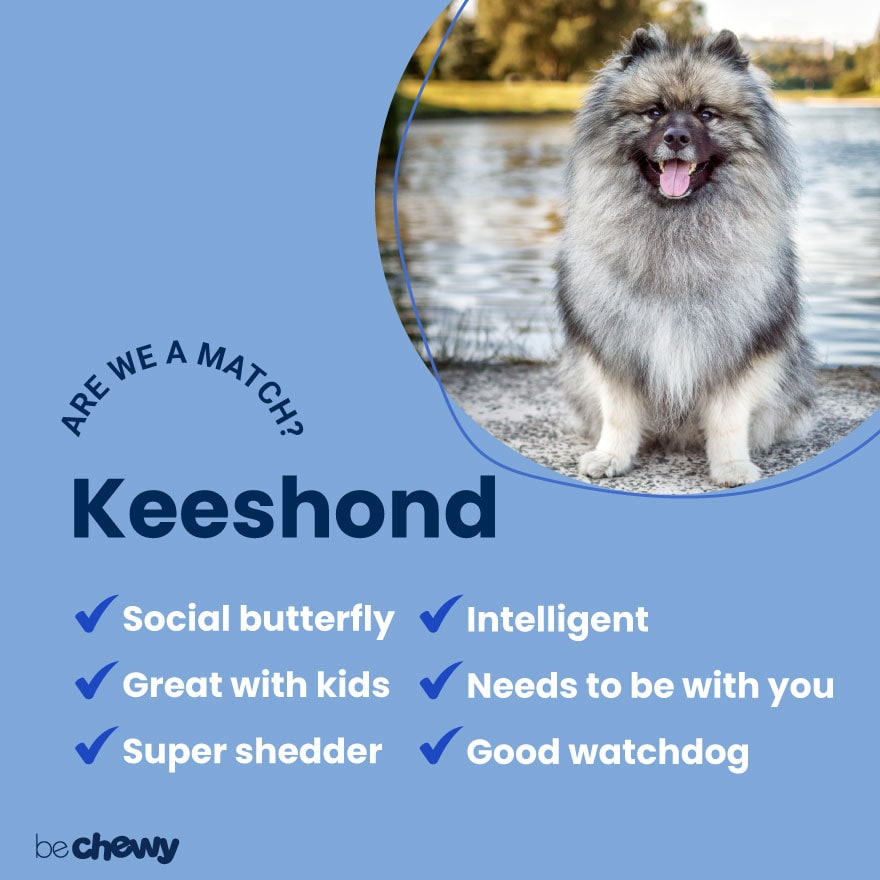
Top Takeaways
The Keeshond is a smart, sensitive breed with a lion’s mane and a penchant for cuddling. They’re too friendly to be guard dogs but make excellent watchdogs—it’s what they were bred to do! They also make excellent family pets, are good with kids, cats, and other dogs and are happiest when surrounded by family that they can stare at with love in their eyes.
Expert input provided by Sarah Wooten, DVM, CVJ at PumpkinCare and Alex Smith, a trainer at the Positive Puppy Trainer.
Breed characteristic ratings provided by Dr. Sarah J. Wooten, DVM, CVJ, a veterinarian at Sheep Draw Veterinary Hospital in Greeley, Colorado; dog trainer and behavior consultant Irith Bloom, CPDT-KSA, CBCC-KA, CDBC, owner of The Sophisticated Dog, LLC, in Los Angeles; and certified animal behavior consultant Amy Shojai, CABC, in Sherman, Texas.
The health content was medically reviewed by Chewy vets.

Search for Adoptable Keeshonds Near You
Female Names
- Luna
- Raven
- Sassy
- Nova
- Callie
- Poppy
- Sadie
- Shadow
- Willow
- Bailey
Male Names
- Loki
- Bear
- Milo
- Tucker
- Kylo
- Ernie
- Archie
- Teddy
- Chip
- Toby
Share:
